Developers fear unfair state-specific levies will make solar more expensive
Developers fear unfair state-specific levies will make solar more expensive
Madhya Pradesh’s new levy on solar developers selling power to entities other than the state distribution companies (DISCOMs) has confirmed the industry’s fear that more states are formulating laws to squeeze solar projects through state-specific levies. The state has announced a Harit Urja Vikas fee of Rs. 0.10/kWh on electricity sold to non-DISCOM consumers. This fee will be applicable to all renewable energy projects with consumers outside Madhya Pradesh. Additionally, in the case of open-access projects, the levy will apply to the entire electricity generated by projects.
Madhya Pradesh’s levy goes a step further in scope than Rajasthan, which imposes a cess between Rs. 200,000 and Rs. 500,000 per MW annually on developers for supplying power to utilities other than DISCOMs in Rajasthan. While the Rajasthan levy is effective on DISCOMs of other states, the green energy levy in Madhya Pradesh will also be borne by commercial and industrial units (C&I) located within the state and procuring solar power through open access.
A developer stated that other states would also start looking at solar projects as an easy and attractive source of revenue. “The Madhya Pradesh fee is akin to the state shooting itself in the foot as its domestic C&I base will suffer due to more expensive solar power.” Another developer specializing in solar open-access projects mentioned that “the Rs. 0.10/kWh levy will not make projects unviable but will surely eat into the profits. Also, the question is not about how it will affect captive or third-party projects but the fairness of imposing such fees. This goes against the growth and development of the renewables sector.”
Over the past few years, C&I consumers all across the country have moved towards renewable energy, especially solar energy, as it has provided meaningful savings in energy costs. By going green, C&I units have gained more credibility and attracted fresh business while being able to secure loans at a reasonable rate as well.
The suite of fees imposed by DISCOMs is adding pressure on developers by cutting into their profits and potentially increasing the cost of projects. States must ensure that the growth of renewables is not hampered if they aim to contribute meaningfully to India’s renewable energy goals.
Suggested Articles
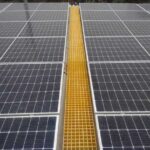
Is Your Solar PV Rooftop System Safe & Protected?
Worried about the safety of your solar rooftop system? Explore key tips, maintenance practices, and protection strategies to keep your Solar PV system secure and efficient
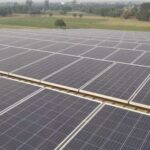
Higher Electricity Bills in Haryana as Fuel Surcharge Rises
Haryana consumers are facing higher electricity bills after the Haryana Electricity Regulatory Commission (HERC) approved a fuel surcharge hike for DHBVN and UHBVN areas. The increase reflects rising fuel and power purchase costs, directly impacting domestic, commercial, and industrial users across the state.

Solar for Warehouses and Malls: Cost, Benefits, Installation & ROI in India
A complete guide on solar for warehouses and malls in India covering installation cost, benefits, ROI, system sizing, and installation process.
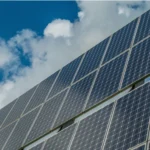
Solar Loans, Subsidies & EMI Plans: Financing Made Easy
Explore solar loans, government subsidies, and flexible EMI plans to make installing solar panels affordable and hassle-free.
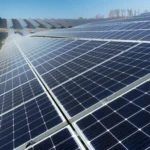
Solar Farm Development: Overcoming the Rising Challenge of Wiring Costs
Wiring costs are soaring in solar farms, affecting project budgets and timelines. Learn why infrastructure is becoming a key challenge.
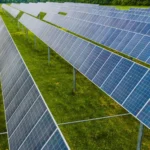
Difference Between Single-Phase and Three-Phase Voltage and Its Use for Solar PV Installer – Complete Guide
Understanding the difference between single-phase and three-phase voltage is essential for solar PV installers. While single-phase supply is common in residential systems, three-phase power is widely used in commercial and industrial solar projects. This complete guide explains electrical phase differences, applications in solar installations, and how choosing the right phase connection impacts system efficiency, safety, and performance.

How MPPT Works in an Inverter: A Simple Guide for Solar Users
This simple guide explains how MPPT works in a solar inverter, helping users understand how it maximizes power output and improves system efficiency.

Solar Savings Made Simple: Know Your Cost Cuts in 2025
Maximize your solar savings in 2025. Learn how solar energy reduces electricity costs for homes and businesses.